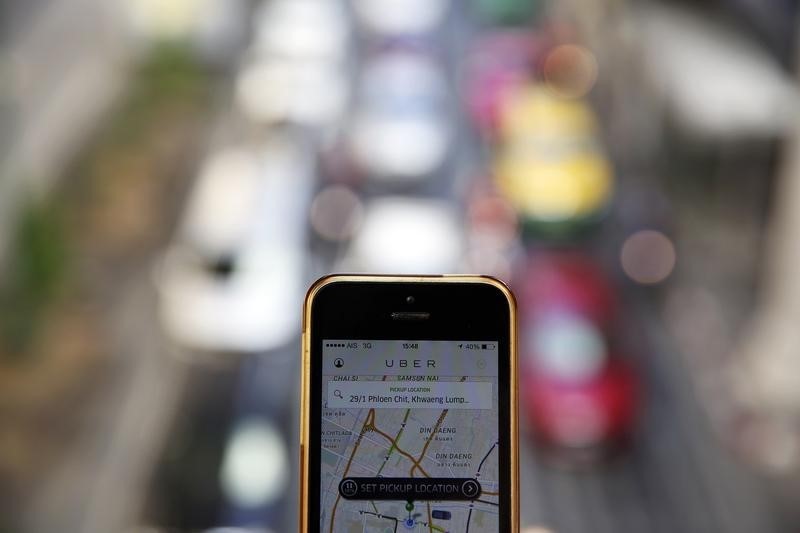By Christiana Sciaudone
Investing.com -- The gig economy is doing better than you think it is. Take the SoFi Gig Economy ETF (NASDAQ:GIGE)-- the thematic fund is up 70% since hitting a low in March.
The notion of staying in one job and at one employer for a 50-year career no longer exists, said David Dziekanski, portfolio manager and partner at Toroso Investments, which advises the fund. Companies will have a core workforce, and freelancers with special skill sets will fill in the gaps.
“The person you hire today is not necessarily the best person to do the job tomorrow,” Dziekanski said in a phone interview. “The online marketplace for freelancers allows companies to source workers with specific talents for projects versus having a massive employee base.”
The gig economy immediately brings to mind two recent and unimpressive IPOs: Uber (NYSE:UBER) and Lyft (NASDAQ:LYFT). Both have tumbled since they went public last year.
But the gig economy is much more diverse than those two companies, Dziekanski said. The SoFi fund includes investments in platform companies like Alibaba (NYSE:BABA); service and transaction businesses, like DocuSign (NASDAQ:DOCU); marketing services, like Tencent Holdings Ltd ADR (OTC:TCEHY); and ancillary providers, like Healthequity Inc (NASDAQ:HQY).
The active ETF brings together companies that otherwise might not be sector-aligned, from online payment group Square Inc (NYSE:SQ) to China e-commerce platform Pinduoduo (NASDAQ:PDD) and freelance marketplace Fiverr International Ltd (NYSE:FVRR). It’s becoming harder to classify companies into traditional sectors, creating a new opportunity for different baskets of stocks based on commonality.
“We view it as the next generation of the world of sectors,” Dziekanski said.
The coronavirus situation keeping people at home instead of at work accelerated the move toward flexible working situations and even more e-commerce adoption, Dziekanski said.
And even though Uber and Airbnb aren’t the biggest winners right now, there is hope for the future, Dziekanski said. When people do return to work, even if just a couple times a week, there’s less exposure to germs in an Uber than on a train. And given the new work-from-home norm, Airbnb has been benefiting from families seeking to escape to more secluded areas for longer stays.
